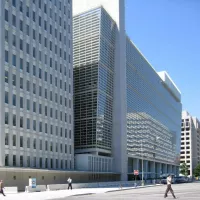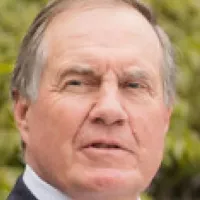Azerbaijan is a transcontinental and landlocked country located in the South Caucasus region at the intersection of Western Asia and Eastern Europe. It is bordered by the Caspian Sea to the east, Russia to the north, Georgia to the northwest, Armenia and Turkey to the west, and Iran to the south. Baku is the nation's capital and largest city.
April 1918: March Days Massacres
The March Days massacres took place between 30 March and 2 April 1918 in Baku and adjacent areas of the Baku Governorate.
May 1918: Declaration of Independence as Azerbaijan Democratic Republic
In May 1918, the Musavat party declared independence as the Azerbaijan Democratic Republic (ADR) after the dissolution of the Transcaucasian Democratic Federative Republic.
June 1918: Creation of the National Army of the Azerbaijan Democratic Republic
On June 26, 1918, the National Army of the Azerbaijan Democratic Republic was created. This date is celebrated as Army Day.
1918: Azerbaijani Independence
Azerbaijan gained brief independence from 1918 to 1920, during which many Azerbaijani soldiers died resisting Russian reconquest.
1918: Independence from Transcaucasian Democratic Federative Republic
In 1918, the Azerbaijan Democratic Republic proclaimed its independence from the Transcaucasian Democratic Federative Republic, becoming the first secular democratic Muslim-majority state.
1918: Adoption of Azerbaijan Name
In 1918, the government of Musavat adopted the name Azerbaijan after the collapse of the Russian Empire when the independent Azerbaijan Democratic Republic was established.
June 1919: Premiere of The Celebration of the Anniversary of Azerbaijani Independence
In June 1919, the documentary "The Celebration of the Anniversary of Azerbaijani Independence" premiered at several theaters in Baku.
April 1920: Establishment of Azerbaijan Soviet Socialist Republic
On 28 April 1920, the Bolshevik 11th Soviet Red Army invaded Azerbaijan, establishing the Azerbaijan Soviet Socialist Republic.
1920: Nationalization of Azerbaijan's cinema
After the Soviet power was established in 1920, Nariman Narimanov signed a decree nationalizing Azerbaijan's cinema, influencing the creation of Azerbaijani animation.
1920: Cinema nationalisation
Filmmakers are dealing with issues similar to those faced by cinematographers prior to the establishment of the Soviet Union in 1920.
1920: Incorporation into the Soviet Union
In 1920, Azerbaijan was conquered and incorporated into the Soviet Union as the Azerbaijan SSR.
1940: Cyrillic Spelling Introduced
From 1940, the country's name was also spelled in Cyrillic script as Азәрбајҹан.
1941: Azerbaijan in World War II
In 1941, Azerbaijan played a crucial role in the strategic energy policy of the Soviet Union during World War II, with a fifth of all Azerbaijanis joining the war effort.
February 1942: Awards for Oil Industry Workers
In February 1942, the Supreme Soviet of the Soviet Union awarded orders and medals to more than 500 workers and employees of the oil industry of Azerbaijan.
1945: Azerbaijan in World War II
Azerbaijan played a crucial role in the strategic energy policy of the Soviet Union during World War II, with a fifth of all Azerbaijanis joining the war effort ending in 1945.
1970: Literacy in 1970
According to Soviet data, in 1970, 100 percent of males and females (ages nine to forty-nine) in Azerbaijan were literate.
1970: Ethnic Populations in Azerbaijan
According to the 1970 census, there were 510,000 ethnic Russians and 484,000 Armenians in Azerbaijan.
1989: Armenian as majority language in Nagorno-Karabakh
In 1989, Armenian was the majority language in the region of Nagorno-Karabakh, spoken by about 76% of the regional population.
1990: Forest Cover Extent
In 1990, forest cover in Azerbaijan was around 944,740 hectares.
1990: Declaration of Sovereignty of the Azerbaijan Republic
In 1990, the Supreme Council of the Azerbaijan SSR dropped "Soviet Socialist" from its title, adopted the "Declaration of Sovereignty of the Azerbaijan Republic", and restored the flag of the Azerbaijan Democratic Republic.
August 1991: Proclamation of Independence
In August 1991, the modern Republic of Azerbaijan proclaimed its independence shortly before the dissolution of the Soviet Union.
September 1991: Formation of Republic of Artsakh
In September 1991, the ethnic Armenian majority of the Nagorno-Karabakh region formed the self-proclaimed Republic of Artsakh.
October 1991: Declaration of Independence
On 18 October 1991, the Supreme Council of Azerbaijan adopted a Declaration of Independence following the failed Soviet coup attempt.
October 1991: Creation of Armed Forces of the Republic of Azerbaijan
On October 9, 1991, following Azerbaijan's independence after the dissolution of the Soviet Union, the Armed Forces of the Republic of Azerbaijan were created according to the law on the armed forces.
1991: First Baku International Film Festival East-West
In 1991, after Azerbaijan gained independence, the first Baku International Film Festival East-West was held in Baku.
1991: Membership in International Financial Institutions
In 1991, after gaining independence, Azerbaijan became a member of the International Monetary Fund, the World Bank, the European Bank for Reconstruction and Development, the Islamic Development Bank, and the Asian Development Bank.
1991: End of Cyrillic Spelling
In 1991, the country stopped using the Cyrillic script for its name.
1991: Environmental Preservation Measures
Since independence in 1991, the government has taken measures to preserve the environment of Azerbaijan.
1992: Creation of the National Bank
In 1992, the National (now Central) Bank was created in Azerbaijan based on the Azerbaijan State Savings Bank, an affiliate of the former State Savings Bank of the USSR.
1993: Overthrow of President Elchibey
In 1993, democratically elected President Abulfaz Elchibey was overthrown by a military insurrection, leading to Heydar Aliyev's rise to power.
1993: New Azerbaijan Party in Power
Since 1993, the ruling New Azerbaijan Party has been in power, accused of authoritarianism under presidents Heydar Aliyev and his son Ilham Aliyev.
1993: Aliyev Political Family in Power
The Aliyev political family and the New Azerbaijan Party have continuously been in power in Azerbaijan since 1993.
September 1994: 30-Year Oil Contract Signed
In September 1994, a 30-year contract was signed between the State Oil Company of Azerbaijan Republic (SOCAR) and 13 oil companies, including Amoco, BP, ExxonMobil, Lukoil and Equinor.
1994: End of First Nagorno-Karabakh War
By the end of the hostilities in 1994, Armenians controlled 14–16 percent of Azerbaijani territory, including Nagorno-Karabakh and an estimated 30,000 people were killed and more than a million people were displaced.
1994: Huseynov's Coup Attempt
In 1994, Prime Minister Huseynov attempted a military coup against Heydar Aliyev but was arrested and charged with treason.
November 1995: Adoption of the Constitution
On 12 November 1995, the structural formation of the political system was completed by the adoption of the constitution.
1995: GDP of Azerbaijan
By 2012, the GDP of Azerbaijan had increased 20-fold from its 1995 level.
1995: Javadov's Coup Attempt
In 1995, a coup attempt by Rovshan Javadov, commander of the Russian OMON, was averted, resulting in Javadov's death and the disbanding of Azerbaijan's OMON units.
November 1996: Bahrain Recognizes Azerbaijan
In November 1996, Bahrain was the most recent country to recognize Azerbaijan's independence.
April 1997: Establishment of the Security Council
On April 10, 1997, the Security Council was established in Azerbaijan as a deliberative body under the president.
October 1998: Aliyev Re-elected
In October 1998, Heydar Aliyev was re-elected for a second term as president.
June 1999: Provision Determines Legal Status of Local State Administration
In June 1999, a provision determining the legal status of local state administration on local executive authority was adopted in Azerbaijan.
December 2000: Proclamation of Filmmakers' Professional Holiday
In December 2000, former President Heydar Aliyev signed a decree proclaiming 2 August to be the professional holiday of filmmakers of Azerbaijan.
2001: Azerbaijan Joins Council of Europe
In 2001, Azerbaijan became a member of the Council of Europe and maintains good relations with the European Union.
2001: National Protection of Environment Accelerated
National protection of the environment accelerated after 2001 when the state budget increased through revenues provided by the Baku–Tbilisi–Ceyhan pipeline.
2002: Other Christian denominations in 2002
As of 2002, other Christian denominations in Azerbaijan included Lutherans, Baptists and Molokans.
2002: Azerbaijani Merchant Marine
In 2002 the Azerbaijani merchant marine had 54 ships.
2002: Establishment of Ministry of Transport and membership in Vienna Convention
In 2002, the government established the Ministry of Transport with policy and regulatory functions, and the country became a member of the Vienna Convention on Road Traffic.
2003: Ilham Aliyev Becomes President
In 2003, Ilham Aliyev, Heydar Aliyev's son, became chairman of the New Azerbaijan Party and President of Azerbaijan after his father's death.
2003: Roman Catholics in 2003
In 2003, there were 250 Roman Catholics in Azerbaijan.
2005: Azerbaijan Women's Volleyball Super League placed fourth at the 2005 European Championship
In 2005, the Azerbaijan Women's Volleyball Super League team secured fourth place at the European Championship.
January 2006: Launch of New Azerbaijani Manat
On January 1, 2006, a new currency, the new Azerbaijani manat, was launched in Azerbaijan to cement economic reforms and erase the vestiges of an unstable economy.
May 2006: Baku–Tbilisi–Ceyhan pipeline operational
In May 2006, the Baku–Tbilisi–Ceyhan pipeline (BTC) became operational, extending through Azerbaijan, Georgia, and Turkey, designed to transport up to 50 million tons of crude oil annually from the Caspian Sea oilfields to global markets.
May 2006: Azerbaijan Elected to Human Rights Council
On May 9, 2006, Azerbaijan was elected to membership in the newly established Human Rights Council by the United Nations General Assembly.
June 2006: Term of Office Begins for Human Rights Council
On June 19, 2006, Azerbaijan's term of office began in the Human Rights Council.
2006: Gallup poll on religion importance
In a 2006–2008 Gallup poll, only 21% of respondents from Azerbaijan stated that religion is an important part of their daily lives.
2007: Agricultural Area in Azerbaijan
At the beginning of 2007, there were 4,755,100 hectares of used agricultural area in Azerbaijan, with total wood resources counted at 136 million m.
2007: Inflation Rate Reaches 16.6%
In 2007, the Q1 inflation rate in Azerbaijan reached 16.6% due to spending and demand growth.
2008: Debut at Eurovision Song Contest
Azerbaijan made its debut appearance at the Eurovision Song Contest in 2008.
2008: Gallup poll on religion importance
In a 2006–2008 Gallup poll, only 21% of respondents from Azerbaijan stated that religion is an important part of their daily lives.
2009: Literacy Rate in 2009
According to the United Nations Development Program Report, the literacy rate in Azerbaijan was 99.5 percent in 2009.
2009: Telephone lines and internet users in 2009
As of 2009, there were 1,397,000 main telephone lines and 1,485,000 internet users in Azerbaijan.
2009: Third place at Eurovision Song Contest
Azerbaijan's entry gained third place in the Eurovision Song Contest in 2009.
2009: 2009 Rhythmic Gymnastics European Championships
In 2009, Azerbaijan hosted the Rhythmic Gymnastics European Championships.
2009: Inclusion of Ashiq art in UNESCO list
In 2009, Azerbaijan's ashiq art was included in the list of Intangible Cultural Heritage by UNESCO.
2009: Azerbaijan became European Team Chess Championship winners in 2009
In 2009, Azerbaijan's chess team won the European Team Chess Championship.
2009: Araz Naxçivan clinched bronze medals at the 2009–10 UEFA Futsal Cup
In 2009, the domestic club Araz Naxçivan secured bronze medals at the 2009–10 UEFA Futsal Cup.
November 2010: Azerbaijani carpet proclaimed a Masterpiece of Intangible Heritage by UNESCO
In November 2010, the Azerbaijani carpet was proclaimed a Masterpiece of Intangible Heritage by UNESCO.
2010: Growth in visitor exports
According to a report, between 2010 and 2016, Azerbaijan was among the top ten countries showing the strongest growth in visitor exports.
2010: Railway and airport infrastructure in 2010
By 2010, broad-gauge railways and electrified railways stretched for 2,918 km and 1,278 km respectively, and there were 35 airports and one heliport.
2010: 2010 European Wrestling Championships
In 2010, Azerbaijan hosted the European Wrestling Championships.
2010: Parliamentary Election
In 2010, during the Parliamentary election in Azerbaijan, opposition parties such as Musavat and Azerbaijani Popular Front Party failed to win a single seat. European observers noted numerous irregularities both leading up to and on the election day.
2010: Azerbaijan national futsal team reached fourth place in the 2010 UEFA Futsal Championship
In 2010, the Azerbaijan national futsal team achieved fourth place in the UEFA Futsal Championship.
2011: First place at Eurovision Song Contest 2011
Ell and Nikki won the first place at the Eurovision Song Contest 2011 with the song "Running Scared", entitling Azerbaijan to host the contest in 2012.
2011: 2011 AIBA World Boxing Championships
In 2011, Azerbaijan hosted the AIBA World Boxing Championships.
2011: Azerbaijan Elected to UN Security Council
In 2011, Azerbaijan was first elected as a non-permanent member of the UN Security Council with the support of 155 countries.
2011: Population Growth Rate and Migration in 2011
In 2011, Azerbaijan's population growth rate was 0.85%, and the country experienced a migration rate of −1.14/1,000 people.
June 2012: Additional Powers to Local Executive Authorities Approved
In June 2012, the president of Azerbaijan approved a regulation granting additional powers to local executive authorities, strengthening their dominant position in local affairs.
2012: Increase in GDP
By 2012, the GDP of Azerbaijan had increased 20-fold from its 1995 level.
2012: Covert Payments Begin
From 2012 to 2014, the Azerbaijani leadership made more than 16,000 covert payments as part of an international lobbying operation, as reported by The Guardian in April 2017.
2012: Construction of Kars–Tbilisi–Baku railway
In 2012 the construction of the Kars–Tbilisi–Baku railway was completed. It was meant to improve transportation between Asia and Europe by connecting the railways of China and Kazakhstan in the east to the European railway system in the west via Turkey.
2012: Azerbaijan has a Formula One racetrack, constructed in 2012
In 2012, Azerbaijan constructed a Formula One racetrack.
2012: Azerbaijan hosting the Eurovision Song Contest
In 2012, Azerbaijan hosted the Eurovision Song Contest in Baku.
2012: Neftchi Baku Advances to Europa League Group Stage
In 2012, Neftchi Baku became the first Azerbaijani team to advance to the group stage of a European competition.
2012: Forecasted growth of the Internet sector
In 2012, rapid growth was forecast for the Internet sector for at least five more years.
2012: US Military Aid to Azerbaijan
Since 2012, the US Congress sent military aid to Azerbaijan until legislation in July 2021 impacted such aid.
February 2013: AzerSat 1 satellite launch
On February 7, 2013, the Azerbaijan National Aerospace Agency launched its first satellite, AzerSat 1, into orbit from Guiana Space Centre in French Guiana.
October 2013: Aliyev Re-elected for Third Term
In October 2013, Ilham Aliyev was re-elected to a third term as president of Azerbaijan.
2013: Freedom House Freedom of the Press Report
According to the 2013 Freedom House Freedom of the Press report, Azerbaijan's press freedom status is "not free", and Azerbaijan ranks 177th out of 196 countries.
2013: Azerbaijan was the main sponsor of Spanish football club Atlético de Madrid during seasons 2013/2014
In 2013, Azerbaijan began its sponsorship of Spanish football club Atlético de Madrid for the 2013/2014 season to promote the image of Azerbaijan.
2013: 2013 F1 Powerboat World Championship
In 2013, Azerbaijan hosted the F1 Powerboat World Championship.
2013: Azerbaijan became European Team Chess Championship winners in 2013
In 2013, Azerbaijan's chess team won the European Team Chess Championship.
November 2014: Deterioration of Media Environment
After several years of decline in press and media freedom, in November 2014, the media environment in Azerbaijan deteriorated rapidly under a governmental campaign to silence any opposition and criticism, even while the country led the Committee of Ministers of the Council of Europe.
2014: As of 2014, country's home of Shamkir Chess a category 22 event and one of the highest rated tournaments of all time.
As of 2014, Azerbaijan became home to the Shamkir Chess tournament, a category 22 event recognized as one of the highest-rated tournaments.
2014: Covert Payments End
From 2012 to 2014, the Azerbaijani leadership made more than 16,000 covert payments as part of an international lobbying operation, as reported by The Guardian in April 2017.
2014: Azerbaijan was the main sponsor of Spanish football club Atlético de Madrid during seasons 2013/2014 and 2014/2015
In 2014, Azerbaijan continued its sponsorship of Spanish football club Atlético de Madrid for the 2014/2015 season to promote the image of Azerbaijan.
2014: 2014 European Taekwondo Championships
In 2014, Azerbaijan hosted the European Taekwondo Championships and the Rhythmic Gymnastics European Championships.
2014: Qarabağ Advances to UEFA Europa League Group Stage
In 2014, Qarabağ became the second Azerbaijani club advancing to the group stage of UEFA Europa League.
October 2015: Amnesty International Report on Human Rights
In October 2015, an Amnesty International researcher reported on the severe deterioration of human rights in Azerbaijan.
2015: Forest Ownership
In 2015, 100% of the forest area in Azerbaijan was reported to be under public ownership.
2015: Azerbaijan was the main sponsor of Spanish football club Atlético de Madrid during seasons 2013/2014 and 2014/2015
In 2015, Azerbaijan concluded its sponsorship of Spanish football club Atlético de Madrid, a partnership started in 2013, which was intended to promote Azerbaijan's image worldwide.
2015: Journalists Imprisoned
In 2015, Azerbaijan had the largest number of journalists imprisoned in Europe, according to the Committee to Protect Journalists, and is the 5th most censored country in the world.
2015: 2015 European Games
In 2015, Baku, Azerbaijan hosted the European Games.
2015: Travel and Tourism Competitiveness Report
In 2015, according to the Travel and Tourism Competitiveness Report of the World Economic Forum, Azerbaijan ranked 84th.
2016: Biocapacity Deficit
In 2016, Azerbaijan had 0.8 global hectares of biocapacity per person within its territory, half the world average. Azerbaijan used 2.1 global hectares of biocapacity per person, resulting in a biocapacity deficit.
2016: The country hosted its first Formula One Grand Prix in 2016
In 2016, Azerbaijan hosted its first Formula One Grand Prix.
2016: Fastest-developing travel and tourism economies
In 2016, Azerbaijan placed first (46.1%) among countries with the fastest-developing travel and tourism economies, with strong indicators for inbound international visitor spending.
April 2017: The Guardian Reports on Azerbaijani Laundering Scheme
In April 2017, The Guardian reported that Azerbaijan's ruling elite operated a secret $2.9bn scheme to pay prominent Europeans, buy luxury goods and launder money through a network of opaque British companies from 2012 to 2014.
September 2017: Extension of ACG Development Agreement
On September 14, 2017, Azerbaijan extended the agreement on development of ACG until 2050 according to the amended PSA signed by SOCAR and co-ventures (BP, Chevron, Inpex, Equinor, ExxonMobil, TP, ITOCHU and ONGC Videsh).
2017: Azerbaijan became European Team Chess Championship winners in 2017
In 2017, Azerbaijan's chess team won the European Team Chess Championship.
2017: Islamic Solidarity Games in 2017
In 2017, Baku hosted the fourth Islamic Solidarity Games.
2017: Qarabağ Reaches UEFA Champions League Group Stage
In 2017, after beating Copenhagen 2–2 in the play-off round, Qarabağ became the first Azerbaijani club to reach the group stage of the UEFA Champions League.
2017: Azerbaijan Grand Prix since 2017
Since 2017, Azerbaijan has hosted the Azerbaijan Grand Prix.
April 2018: Aliyev Secures Fourth Term
In April 2018, Ilham Aliyev secured his fourth consecutive term in an election boycotted by main opposition parties.
2018: Forest Landscape Integrity Index Score
In 2018, Azerbaijan had a Forest Landscape Integrity Index mean score of 6.55/10, ranking it 72nd globally out of 172 countries.
2018: Entry with X My Heart
In the 2018 edition of the Eurovision Song Contest, Azerbaijan entered with X My Heart by singer Aisel.
January 2019: Female population in January 2019
In January 2019, 50.1% of the total population in Azerbaijan was female. The sex ratio in the same year was 0.99 males per female.
2019: 2019 European Youth Summer Olympic Festival
In 2019, Azerbaijan hosted the European Youth Summer Olympic Festival.
2019: Ethnic Composition in 2019
The 2019 population census shows the ethnic composition of Azerbaijan to be: 94.8% Azerbaijanis, 1.7% Lezgins, 0.9% Talysh, 0.7% Russians, 0.5% Avars, 0.4% Turks, 0.3% Tats, 0.2% Tatars, 0.1% Ukrainians, 0.1% Tsakhurs, 0.1% Georgians, 0.1% Jews, and 0.2% others.
September 2020: Resumption of Nagorno-Karabakh Conflict
On 27 September 2020, clashes in the unresolved Nagorno-Karabakh conflict resumed along the Nagorno-Karabakh Line of Contact.
2020: Second Nagorno-Karabakh War
Following the Second Nagorno-Karabakh War in 2020, the seven districts and parts of Nagorno-Karabakh were returned to Azerbaijani control.
2020: Azerbaijan's Defence Budget
In 2020, Azerbaijan spent $2.24 billion on its defence budget, amounting to 5.4% of its total GDP.
2020: Forest Cover Extent
In 2020, forest cover in Azerbaijan was around 14. % of the total land area, equivalent to 1,131,770 hectares.
July 2021: US Congress Advances Legislation Impacting Military Aid
On July 1, 2021, the US Congress advanced legislation impacting the military aid that Washington has sent to Azerbaijan since 2012, reducing aid packages compared to Armenia.
2021: Active Military Personnel
As of 2021, Azerbaijan had 126,000 active personnel in its armed forces, along with paramilitary troops and reserve personnel.
2021: Gasification of the Country
Azeriqaz, a sub-company of SOCAR, intends to ensure full gasification of the country by 2021.
March 2022: Urban vs Rural Population
As of March 2022, 52.9% of the population of Azerbaijan (10,164,464) was urban, with the remaining 47.1% being rural.
September 2023: Azerbaijan Launches Offensive
In September 2023, Azerbaijan launched an offensive against the breakaway Republic of Artsakh in Nagorno-Karabakh.
2023: Azerbaijani Offensive Ends Republic of Artsakh
In 2023, an Azerbaijani offensive ended the Republic of Artsakh and resulted in the flight of Nagorno-Karabakh Armenians.
January 2024: Dissolution of Artsakh and Reintegration
On 1 January 2024, the Republic of Artsakh was dissolved and reintegrated, resulting in the flight of nearly all ethnic Armenians from the region.
2024: Global Innovation Index Ranking
In 2024, Azerbaijan was ranked 95th in the Global Innovation Index.
2024: Freedom House Ranking
In 2024, Freedom House ranked Azerbaijan as "not free" with a Global Freedom Score of 7/100, categorizing its regime as authoritarian.
2024: Prosecution of Journalists
In 2024, journalists from the independent Abzas Media, Toplum TV, and Meydan TV were prosecuted in trials that international human rights organizations described as unfair.
August 2025: Joint Declaration for Peace Deal
On 8 August 2025, Azerbaijani President Ilham Aliyev and Armenian Prime Minister Nikol Pashinyan signed a joint declaration at the White House, committing to a peace deal.
2025: Global Innovation Index Ranking Improvement
In 2025, Azerbaijan moved up to the 94th rank in the Global Innovation Index.
2025: Trials Against Journalists
In 2025, journalists from the independent Abzas Media, Toplum TV, and Meydan TV were prosecuted in trials that international human rights organizations described as unfair.
2025: Political Prisoners in Azerbaijan
In 2025, there were 375 political prisoners in Azerbaijan.
2050: ACG Development Agreement
On September 14, 2017, Azerbaijan extended the agreement on development of ACG until 2050 according to the amended PSA signed by SOCAR and co-ventures (BP, Chevron, Inpex, Equinor, ExxonMobil, TP, ITOCHU and ONGC Videsh).
Mentioned in this timeline
The Union of Soviet Socialist Republics USSR existed from to...
The Guardian is a British daily newspaper founded in as...
China officially the People's Republic of China PRC is an...

Inflation in economics signifies an increase in the average price...

The World Bank is an international financial institution offering loans...

Football is a family of team sports primarily involving kicking...
Trending
8 months ago Queens 10K Returns: Race, Festival, Kids Run & Community Engagement in 2025
4 months ago John Deere appointments, Origin Agritech restructure, and crowds at YP Field Days in September 2025.

2 months ago Belichick Eyes Wake Forest Amidst Giants Job Rumors: McDaniels Also in the Mix?

Joe Montana nicknamed Joe Cool and The Comeback Kid is a Hall of Fame quarterback who played seasons in the...

7 months ago Deion Sanders excited to rejoin Colorado, praises Joey McGuire, addresses health concerns.

2 months ago Billy Strings Teases Spring 2026 Tour Dates and Shares Activity Sheet.
Popular

Thomas Douglas Homan is an American law enforcement officer who...

William Franklin Graham III commonly known as Franklin Graham is...

XXXTentacion born Jahseh Dwayne Ricardo Onfroy was a controversial yet...

Jupiter is the fifth and largest planet from the Sun...

Instagram is a photo and video-sharing social networking service owned...

KFC or Kentucky Fried Chicken is an American fast-food chain...